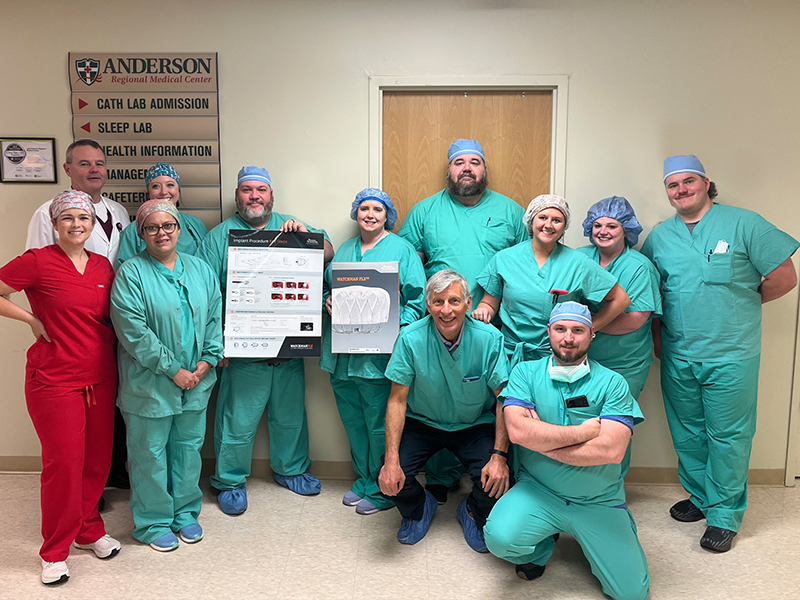Baptist Anderson Regional Medical Center and Baptist Memorial Hospital-North Mississippi recently successfully implanted the WATCHMAN FLX Left Atrial Appendage Closure device in patients for the first time. The device, implanted during a minimally invasive procedure, reduces the risk of stroke in patients with atrial fibrillation (AFib), a quivering or irregular heartbeat that is not caused by a heart valve problem.
About the size of a quarter, the device is placed into the left atrial appendage of the heart, where 90% of stroke-causing blood clots form in patients with AFib. The device permanently closes off this part of the heart to keep blood clots from escaping. This new treatment may eliminate the need for AFib patients to take blood thinners.
Baptist Anderson
Dr. L. Shea Hailey and Dr. Thomas Plavac, interventional cardiologists with Cardiovascular Institute of the South (CIS), are the first in Meridian, Mississippi, to perform the procedure to reduce the risk of stroke caused by AFib.
“We are excited to offer this new procedure that allows our patients to receive advanced care without having to travel outside the Meridian area,” said Dr. Keith Everett, chief medical officer at Baptist Anderson Regional Medical Center. “The long-standing teamwork between Baptist Anderson and CIS, in combination with our evidence-based and protocol-driven approach, raises the bar for local cardiac care.”
Baptist North Mississippi

Dr. Thomas Flautt, electrophysiologist with Stern Cardiovascular in Oxford, Mississippi, implanted the device for the first time in a patient at Baptist North Mississippi. “We are excited to offer this new procedure to patients who live with a risk of stroke because of atrial fibrillation,” said Dr. Flautt. “This one-time procedure can help reduce their risk for stroke while offering an alternative to a lifetime of taking blood thinners. That can be life-altering for these patients.”
“We are very proud of Dr. Flautt and our cardiology team for making such a significant difference in our patients’ lives that are at high risk for stroke,” said Brian Welton, administrator and CEO at Baptist North Mississippi. “It’s a huge advantage for our patients to have this resource, and it enables us to help an even broader group of patients.”






